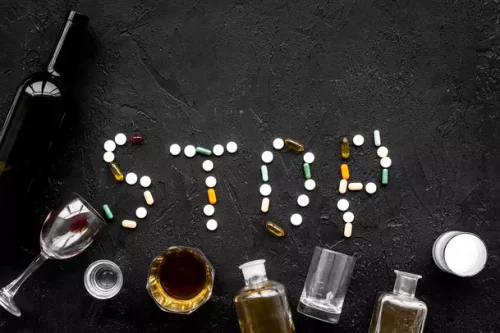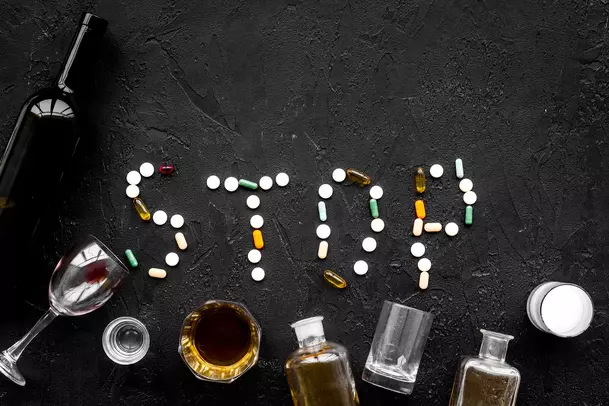
While peer influence can improve your life, peer pressure can cause problems. For example, you may feel pressure to do unsafe things that have risks you may not fully know. Resisting peer pressure can involve avoiding it, saying no, and surrounding yourself with more positive influences. By rehearsing how to decline invitations or peer requests beforehand, teens feel more prepared and less pressured when the moment arises.
Stress Reduction Techniques for Teens

Parents can promote this by actively listening and offering non-judgmental feedback, which strengthens trust and openness in the relationship. As a parent, it’s hard not to worry about your teen navigating the tricky waters of social pressure. Between school, social media, and trying to figure out who they are, the pressures teens face can be overwhelming. Peer pressure is a normal part of growing up, but it can be tough for teens to know how to handle it. Have you heard the old joke about the patient who tells the what is alcoholism doctor, “Doc, my arm hurts when I do this!
How to handle peer pressure as a teen
I feel sick from even just being around smoke.” Although we want our children to be polite, it is also vitally important, particularly for our girls, to know that a firm “No! When people learn to set their own limits, they’ll feel more in control of themselves in many situations throughout their lives. There are endless skills for teens to develop with their peers. Skills that are needed to work effectively with people, have meaningful friendships, and healthy romantic and family relationships in the future. While peers become increasingly important during adolescence, parents continue to play a vital role. Part of that role involves helping teens successfully navigate increasingly complex social situations.
The Importance of Forgiveness in the Recovery Process
- Firm body language, direct eye contact, and a strong tone of voice can reinforce a refusal, making it harder for peers to counter the decision.
- These tools can facilitate private journaling, mood tracking, and guided meditations that promote self-reflection and emotional management.
- It’s important to allow teens to make day-to-day decisions for themselves.
- Parents should aim to maintain an emotional connection, assuring their teens that they are always available for support and guidance.
By immersing themselves in positive peer groups, teenagers cultivate resilience against negative peer pressure. Through these practices, open communication becomes essential to navigating peer pressure effectively, allowing teens to develop confidence and resilience against negative influences. We have learned that educating teens about what not to do is not enough.
Peer Pressure Strategies for Teens

We hear much more about direct peer pressure, as it is easier to detect and recognize as problematic. It sounds like someone telling you to stop worrying, start having fun, and be part of the group by participating in something you don’t feel comfortable with. It may also be a threat, such as, “You can’t hang out with us if you’re not going to drink.” Adults are not exempt from facing societal expectations and peer judgment or influence. For example, you may carry the pressure of academic achievement into your career. Gender can affect how these pressures are internalized and expressed.
Building Character
- When you have a strong support system, you’ll be more motivated to succeed and make healthy choices.
- It is up to them (not their friends) to decide what they value.
- Through messaging and video calls, teens can reach out to parents, teachers, or counselors more easily.
- It’s a normal and important part of growing up to pull away from parents as they do so.
A supportive peer group can reinforce indirect peer pressure positive behaviors and reaffirm personal goals. Parents should aim to maintain an emotional connection, assuring their teens that they are always available for support and guidance. It doesn’t take long for children to learn that life is full of choices. By the time our children hit adolescence, they know making choices can bring a certain amount of pressure and stress. Teaching teens — and modeling — coping strategies will help them make healthier choices during the stressful and challenging situations that often come with peer pressure.
Myths About Drug Detox

These tools emphasize the importance of building supportive friendships and recognizing signs of negative peer pressure. When you’re a teen, it’s normal to want to fit in and have friends. But when your peers make unhealthy choices and pressure you to do so, that’s called negative peer pressure. While it can be a common part of your teen years, it’s still possible to make healthy decisions. The desire to fit in and feel like you are part of a group is normal, and most people feel this way sometimes, especially in the teen and young adult years. Peer pressure, that feeling that you have to do something to fit in, be accepted, or be respected, can be tough to deal with.

The Role of Education in Preventing Relapse
Extended family, teachers, counselors, clergy, and coaches are also good resources. They can provide advice and help deal with pressure-filled situations. The first line of defense against peer pressure is a strong sense of self. When you are clear about your values and priorities, resisting the urge to conform to others’ expectations becomes easier. Whether it’s honesty, kindness, academic success, or personal health, knowing your core values can guide your decisions and give you the confidence to stand firm.
If you’re feeling pressured to go along with your mates and aren’t sure what to do, we can help you figure it out.
In today’s digital age, mental health apps provide valuable support for teenagers navigating peer pressure and emotional challenges. Applications like ‘Let’s Get Happi’ help teens improve their emotional well-being through interactive features, personalized coping strategies, and mindfulness exercises. These tools can facilitate private journaling, mood tracking, and guided meditations that promote self-reflection and emotional management.







No Response to "8 Tools to Help Your Teen Cope With Peer Pressure"